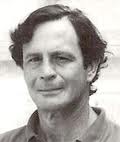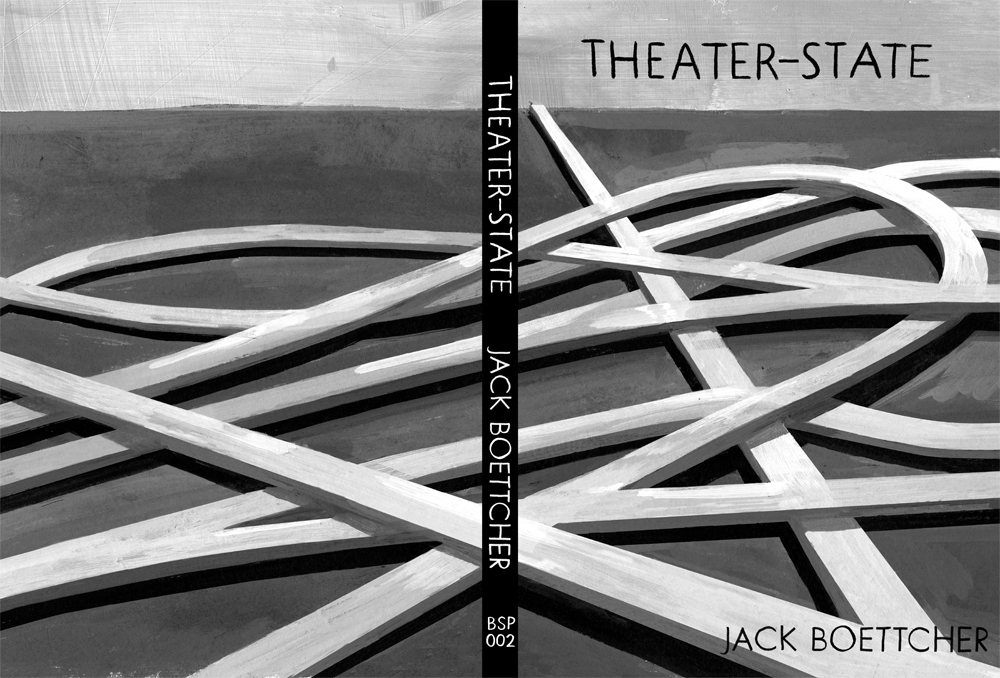“All I know about music is that not many people ever really hear it. And even then, on the rare occasions when something opens within, and the music enters, what we mainly hear, or hear corroborated, are personal, private, vanishing evocations. But the man who creates the music is hearing something else, is dealing with the roar rising from the void and imposing order on it as it hits the air. What is evoked in him, then, is of another order, more terrible because it has no words, and triumphant, too, for that same reason. And his triumph, when he triumphs, is ours.” — James Baldwin, “Sonny’s Blues”
Paul Violi, 1944-2011
 The poet and beloved teacher Paul Violi died early this month, and I’ve just found out that the Best American Poetry blog has a section devoted to thoughts and memories shared by friends and associates; anyone who has something to share may contribute. It is here.
The poet and beloved teacher Paul Violi died early this month, and I’ve just found out that the Best American Poetry blog has a section devoted to thoughts and memories shared by friends and associates; anyone who has something to share may contribute. It is here.
Coldfront did a nice tribute w/ poem here.
I hadn’t the pleasure of studying with Mr. Violi at the New School, but I was lucky enough to have a conversation or two with him and to hear him read a few times, which was always a great treat. For someone like me, who didn’t really know him, he was nevertheless a fixture at my school in the best possible way, and it’s hard to imagine the place without him. It is surely a keen loss to those who knew him. If you didn’t know him, it will be your gain to discover or rediscover his work now. Here is a list of what you can find online.
WUZZUP // Heather Christle‘s poem “Basic” appears in this week’s edition of the New Yorker!! // WUZZUP
Theater-State by Jack Boettcher
Brand new for preorder pending a later summer release is Jack Boettcher’s Theater-State, a book I’ve been hearing about and anticipating for quite some time. The second book from the NYC/Atlanta based Blue Square Press, this is one you should support early and pregrab a copy of: the quality of their first release, and the subsequent word on Jack’s book guarantees it’s going to shred. Check it:

“Theater State reveals the panopticon not as an instrument of surveillance but as a mesmerizing holograph from which we prisoners of “reality” (and of high school) cannot tear our eyes. In this inside-out world, violence is an encircling Megahighway and the center mutable, vulnerable, and virtual, always flowing somewhere else. As young Janus negotiates the heights and sinkholes of adolescence, including an affair with a regional pop-avatar, servitude to a morphing, megalomaniacal principal, and a class project managing a convulsive neocolony, Jack Boettcher’s reticulated sentences themselves contract and unfurl with sometimes enticing, sometimes ensnaring beauty. As the civics teacher Ms. Denton TX threatens: “Learning is an adventure.””
–Joyelle McSweeney, author of Nylund, the Sarcographer, The Red Bird, and The Commandrine and Other Poems
“Even though the principal in Boettcher’s Theater-State has a white tiger slumbering in his office, the school that Janus and Katydid and Cassie attend, with Ms. Denton, TX as their teacher, is all too familiar – terrifyingly familiar. The mind-bending cross over between the world of statecraft and a private science academy becomes all too real for Janus…when it is revealed that it is drivers that shape the roads and not the other way around…and when the general paranoid lyricism of Boettcher’s odd and compelling novel, like the Mayan ceremonial white roads, leads you not necessarily to a destination but on a journey. It’s an amazing journey. I don’t think you have any choice but to take it.”
–Matthew Rohrer, author of Destroyer and Preserver, Rise up, and A Green Light
An excerpt from the book and preorder info are available here.
NYC: cool thing at the PL this Tuesday
Periodically Speaking hosts SUPERMACHINE and 6X6 (UGLY DUCKLING PRESSE) magazines—

Ben Fama and Matvei Yankelevich in conversation with
(and readings by):
Macgregor Card
Corina Copp
Dorothea Lasky
Founders of influential literary mags 6X6, SUPERMACHINE, and the former GERM, with writers they’ve published over the years, discuss the past, present and future of literary publishing, after brief readings.
Tuesday, April 12 · 6:00pm – 7:30pm
DeWitt Wallace Periodical Room, The New York Public Library
Stephen A. Schwarzman Building @ 5th Ave & 42nd Street
New York, NY
(FACEBOOK)
Jeremy Schmall’s Jeremy Schmall & The Cult of Comfort

Jeremy Schmall is the bioluminescent pancake maker behind the radical operation that calls itself The Agriculture Reader. If you haven’t read an issue of AGR, you’re going to want to do that. Jeremy Schmall & the Cult of Comfort, published by X-ing Books, is a 99-page collection with 48 poems. The book is supremely beautiful, like all of the objects from X-ing. And it’s tiny, which is awesome, because you’ll want to carry this book around with you, and throw it at people, and cause major social disruptions with it by your side, and hang out in the park afterwards, maybe with a couple beers, making funny faces in the dark.
April 9th, 2011 / 4:56 pm
Two cool readings coming up in NYC:
1) Tonight April 9th @ 7PM @ Unnameable Books: Big Other Presents John Haskell, Jamie Iredell, and John Madera
2) Monday April 11th @ 8PM @ The Poetry Project: Rachel B Glaser & Amy Lawless
Feel free to give a shout out for elsewhere readings in the comments.
We Too Are Children

This blog written by Ariel S. Winter catalogs children’s literature by adult authors of the 21st century which are apparently currently out of print. My faves: The Cat and the Devil by James Joyce, which is actually back in print now, all of these by Langston Hughes, and Andy Warhol’s Card Games Are Fun.
The name Ariel S. Winter reminds me of Jonathan Winters. Where do people get these names anyway? Jack Pendarvis blogged about him today. Jack Pendarvis is an adult author who really should write some children’s fiction. I think people who made up fairy tales like those of the Brothers Grimm probably had a mind very much like that of Mr. Pendarvis.
On my breaks from subbing a class of fourth graders at an international school, I read a lot of Howard Zinn’s A Young People’s History of the United States. In his introduction Zinn defends the adaptation of his book from critics who I’m sure did denounce the book for presenting children with an alternate view of the American history they are still in the process of learning. I don’t remember exactly what he said exactly, but it was pretty much along the lines of: Most people treat children like children even though they understand everything that’s going on just as well as anyone. My feeling on this is that most people who treat children like children and think they can’t handle the Truth! haven’t been around children very much. READ MORE >

